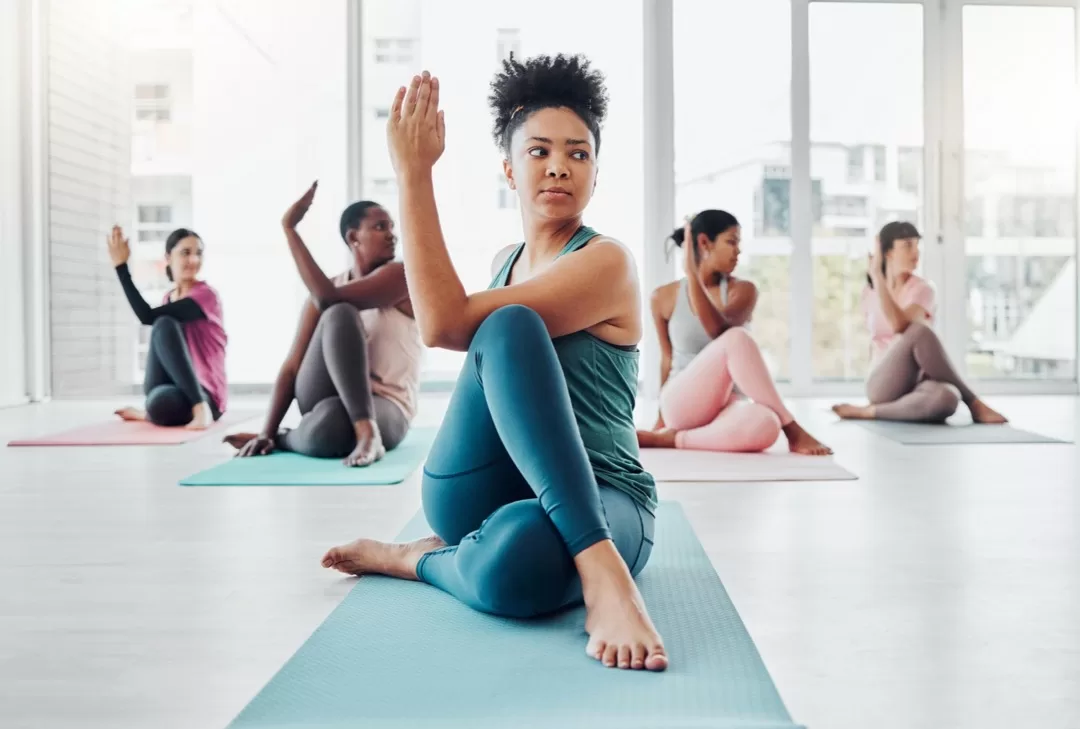79tka Insights
Your go-to source for the latest news and information.
Bend It Like Buddha
Unlock the secrets of mindfulness and flexibility with Bend It Like Buddha—your guide to a balanced and fulfilling life!
The Intersection of Yoga and Mindfulness: Finding Balance in Everyday Life
The practice of yoga and mindfulness are deeply intertwined, offering a holistic approach to achieving balance in our fast-paced lives. By incorporating mindfulness into your yoga routine, you foster a greater sense of awareness and presence in each pose. This synergy not only enhances your physical practice but also cultivates mental clarity. For instance, during each inhalation and exhalation, focus on the sensations in your body and the rhythm of your breath, allowing yourself to fully engage with the moment. This mindful approach transforms each session into a journey of self-discovery and inner peace.
Adopting the principles of yoga and mindfulness into your daily routine can significantly improve your overall well-being. Here are some practical tips to help you integrate these practices into everyday life:
- Start your day with a few minutes of mindful breathing before moving into your yoga practice.
- Take short breaks throughout your day to pause, breathe, and appreciate your surroundings.
- Incorporate yoga stretches into your work routine to alleviate stress and tension.
By consistently integrating these practices, you pave the way for a balanced lifestyle that nurtures both your body and mind.

How to Cultivate Compassion Through Practice: Lessons from Buddhism
In a world that often feels divided and disconnected, cultivating compassion has become increasingly important. Lessons from Buddhism teach us that compassion is not just an innate feeling but a skill that can be strengthened through dedicated practice. One effective method to develop this quality is through mindfulness meditation. By sitting in quiet reflection, individuals can observe their thoughts and feelings without judgment, allowing them to recognize and embrace the emotions of others. This practice promotes empathy, as it teaches us to pay attention to our inner experiences, which in turn fosters understanding and kindness toward those around us.
Another valuable Buddhist practice is the cultivation of loving-kindness (Metta). This involves a simple but profound exercise: silently repeating phrases of goodwill towards oneself and others. One might start with, 'May I be happy. May I be healthy. May I be safe. May I live with ease.' Gradually, this focus can expand to include friends, acquaintances, and even those we find challenging. This intentional approach helps in softening the heart and nurturing a genuine sense of compassion that transcends personal biases and preconceived notions. Embracing these practices can lead to a transformative journey, ultimately allowing compassion to become a natural and integral part of our lives.
What Does 'Bending It Like Buddha' Mean in Modern Spirituality?
The phrase 'Bending It Like Buddha' reflects the integration of traditional spiritual wisdom with modern life challenges. In contemporary spirituality, this concept suggests adapting the teachings of spiritual figures, such as the Buddha, to navigate the complexities of everyday existence. Just as skilled athletes bend their techniques to achieve success, individuals are encouraged to use mindfulness and compassion to 'bend' their responses to life's adversities. This approach allows one to remain grounded and centered, even amidst chaos, fostering a deeper connection to oneself and the world.
Moreover, 'Bending It Like Buddha' also implies a level of flexibility in one’s spiritual practice. This means embracing change and being open to different interpretations of spiritual teachings. The ability to 'bend' signifies a dynamic approach to spirituality; rather than adhering strictly to dogma, modern practitioners often seek personalized methods that resonate with their unique experiences. As such, individuals can cultivate a strong inner peace, engage more fully with their surroundings, and ultimately, enhance their personal growth.